-
 From nice story to pulped fiction: Carney delivers reality check on rules-based order
From nice story to pulped fiction: Carney delivers reality check on rules-based order
-
 Record bonds, rising bills: Greece’s economic paradox
Record bonds, rising bills: Greece’s economic paradox
-
 Podcast - Tax cuts and balancing acts: Greece's 2026 budget
Podcast - Tax cuts and balancing acts: Greece's 2026 budget
-
 Podcast - Main character energy: Greece vies for leading fossil fuel role
Podcast - Main character energy: Greece vies for leading fossil fuel role
-
 15% Uncertainty: Greece, Europe and the tariff shockwave
15% Uncertainty: Greece, Europe and the tariff shockwave
-
 Summit of transactions – Erdogan and Trump
Summit of transactions – Erdogan and Trump
On lockdown: The moments that will remain
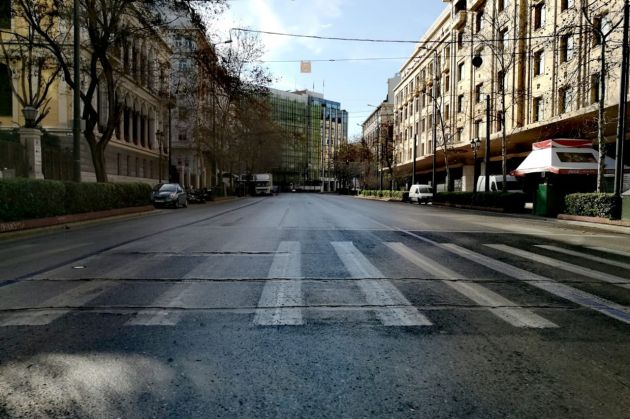
If we’re lucky (and, let’s be honest, circumstance will have played some part), we’ll look back on the last few weeks and remember the peculiar moments rather than the tragic incidents.
Unlike some European countries, death and suffering from Covid-19 has been limited in Greece. This gave us the luxury of observing the small oddities that germinated amid the unique conditions created by the pandemic.
Snapshots of the lockdown, which is now being phased out, will be imprinted in our minds for the rest of our lives. These seemingly insignificant instances of our drastically altered daily lives will be the tokens to fire up our memories when the absurdity of our current predicament has long passed.
We may think about how we crossed to the opposite side of an empty street to put a safe distance between ourselves and a passer-by as if walking through the roughest part of town at the most sinister of hours. We might recall the frivolity of an open ice cream shop or patisserie amid dozens of shuttered stores selling things that seemed more integral to our existence.
We could reminisce about the smiling grandfather, hugging the air roughly two metres away from his perplexed, pushchair-bound grandchild. We may look back on how often we came across discarded surgical gloves and masks on the street, scattered like the detritus of a ghoulish party. We might even cast our mind back to the tortoise stretching out on a sunlit patch of grass and how, briefly, we lived in its confined, still world.
Reflections
It won’t be just the sights that will stay with us. Our cities, used to gasping for air, were given room to breathe. With that, came sounds and smells that had been smothered before.
The aroma from the blossom of bitter orange trees pervaded the air and lingered like the scent of a mesmerising new encounter. No longer competing with the whirr of urban life, bird song punctuated our days, offering a consoling soundtrack.
The sounds heard when walking through city neighbourhoods under lockdown also provided tell-tale signs of the different ways Athenians coped with the restrictions. From one balcony, a family’s chatter signalled an effort to maintain normality or maybe it belied the mounting tension that came from spending weeks in each other’s presence, with no job, school or university to go to.
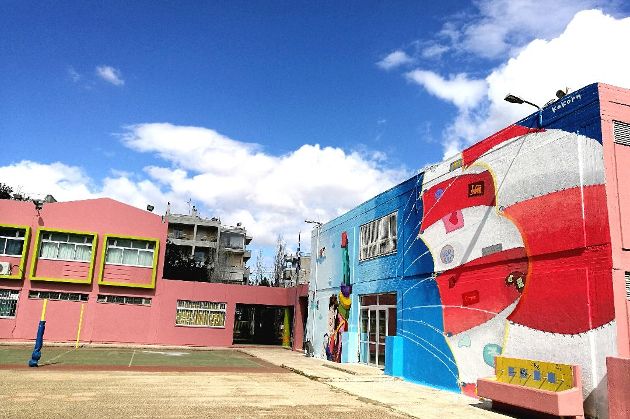
From another apartment, a religious service broadcast by the Church of Greece’s radio station could be heard – a believer looking for the solace of a familiar liturgy while churches kept their doors closed. At another home, a football fan blared out his team’s anthem – another member of the faithful looking for comfort while his place of worship also remained shut.
Perhaps, though, it is the quiet that will remain with us more than anything else. Apart from a burst of noise on Easter Sunday, when families in Athens made up for not being able to visit their ancestral villages by roasting lamb on their balconies and in their backyards, the city was unusually, even eerily quiet.
At first this may have reflected the ominous nature of the coronavirus and fears that Greece would be overwhelmed by the disease, like neighbouring Italy. But over time the silence attested to the introspection about lives that will be altered, rather than lost, due to this crisis. This was when we dwelled on whether our businesses will survive and our jobs are safe or if we are satisfied with our lives and what changes we must make to ensure security and sustainability.
In these moments, we resembled Dr Rieux, the narrator of The Plague by Albert Camus, a book which has found an added relevance amid the pandemic. As Rieux looks upon the “tranquil radiance of a cool spring sky,” he considers how modernity has provided his town, Oran in Algeria, no protection from the disease or unexpected death, leaving its inhabitants as vulnerable as those of ancient Athens and other cities where plagues struck subsequently.
“The clang of an unseen tram came through the window, briskly refuting cruelty and pain. Only the sea, murmurous behind the dingy chequerboard of houses, told of unrest, the precariousness of all things in this world,” wrote Camus.
Bring the noise
The limited number of deaths in present day Athens meant that the period of quiet reflection was brief. Those interested in self-promotion, rather than self-examination, soon generated enough noise to puncture the calm.
It is evident that Greece has navigated this demanding and unpredictable first stage of the public health challenge posed by Covid-19 very well. Prime Minister Kyriakos Mitsotakis and his advisers were perspicacious enough to be “painfully aware” that Greece’s bedraggled public health system could not stand up to even the slightest pressure. This prompted them to adopt decisions early enough to stifle the virus and prevent it spreading. The policy was communicated clearly and consistently, leaving Greeks in little doubt about the seriousness of the threat and the actions to combat it.
Steps were taken to bolster public hospitals with equipment and staff. The Digital Governance Ministry sped up the roll-out of several online services, which gave Greeks less cause to leave their homes during the lockdown. Most significantly, Mitsotakis put an expert in his field, epidemiologist Sotiris Tsiodras, rather than a party cadre in charge of coordinating the public health response to the virus. Having done so, the prime minister then had the decency to give the doctor the space and tools necessary to do his job.
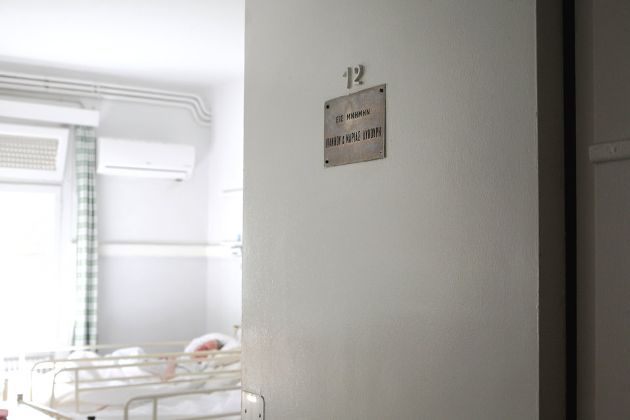
This level of foresight and competence was not a given for Greece. The country’s leaders and its public administration have shown repeatedly over many years that when faced with a crisis they are liable to sink to the occasion. Greece leaves behind this initial phase of the pandemic with multiple gains from its considered approach.
Opponents have kicked up a fuss in the hope of preventing Mitsotakis and his New Democracy party from gaining the political capital from their successful navigation. But it has proved to be mostly white noise. Frantic claims about specific cases, a lack of protective equipment for medical staff and an absence of tests were symptomatic of attempts to chip away at the government’s veneer rather than efforts to shed more light on the facts. The mild-mannered Tsiodras also found himself under attack on occasions despite his non-political background and the assured way he conducted Greece’s Covid-19 efforts.
These clumsy attempts by some SYRIZA officials, journalists and social media commentators overshadowed genuine questions about the government’s handling of some aspects of the Covid-19 response, such as the decision to hand out 20 million euros to local media outlets for awareness campaigns and a botched 80-million-euro e-learning scheme that was used as a conduit to provide income support to professionals.
The opposition’s inability to make targeted and substantiated criticism of the government also gave the ND-friendly sections of the media more space to present every decision taken by the ruling party as a resounding victory, giving the false impression Greece is peerless in fighting the coronavirus.
But these were just more clangs from Camus’s unseen tram – noise distracting us from reality. Although Greece coped admirably with Covid-19, it was not the result of any great innovation or novel approach. It acted with the same common sense and precaution as numerous other countries, putting human life above all else. Portugal, Slovakia, Cyprus and other European countries have earned plaudits for doing the same, while South Korea, Singapore and Hong Kong are among those that have been recognised for their cutting-edge policies. Given how many unanswered questions there are about Covid-19 and what lies ahead, though, nobody can be confident they have got grips with the disease.
This did not prevent government officials from appearing boastful by regularly brandishing graphs claiming to show the limited number of cases and deaths compared to three other European countries with a supposedly similar population. Apart from the crassness of such comparisons being made by governments at such a sensitive time, so desperate where officials in Athens that none of them noticed that one of the countries – The Netherlands – has a population roughly 60 percent larger than Greece’s. Or, maybe they did but did not want to spoil a good story.
They rushed to hold up any international media report on Greece’s success in suppressing the disease as evidence that the country’s image has been reshaped, while brushing aside any notion that circumstances had helped. The Covid-19 map of Europe highlights, though, that most places east of Vienna have been spared the worst. This is probably due to a combination of factors that include lower interconnectivity and earlier, more stringent measures due to these countries having weaker economies and public health systems. For once, Greece’s geographical position and its economic fragility worked in its favour.
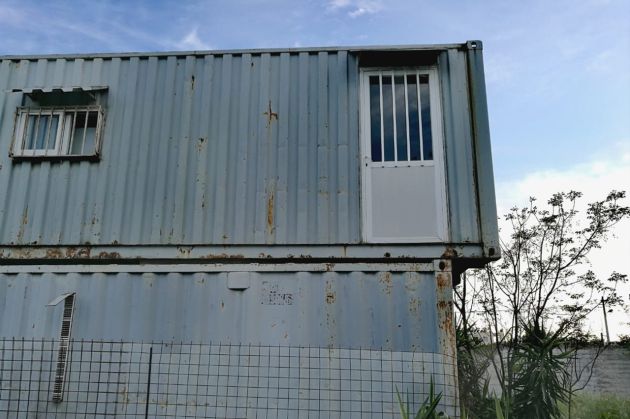
Equally, we cannot overlook the fact that the outbreak hit during the off-peak tourism season. The lack of visitors flying into Greece in the first quarter of the year compared to the summer also helped limit exposure to the disease. Had the virus emerged a few months later, Greece would probably not have been able to contain it so effectively. Equally, the dearth of Greeks travelling to places in Europe or beyond that proved to be hotspots for the virus was also a blessing. Our blighted, mostly inward-looking economy meant that the disease was not being brought back from trade fairs, business trips, holidays abroad, half-term breaks and football matches in significant numbers.
The low amount of cases among Greece’s northern neighbours was also of great benefit to authorities in Athens.
These factors helped Greek officials have several more weeks than their counterparts in some EU countries to plan a response before the first batch of Covid-19 cases was confirmed.
As Prime Minister Mitsotakis said in an interview with CNN this week, Greece has not dodged the coronavirus bullet, just the “first bullet.” The potential return of the virus means it is vital that we acknowledge the full range of factors that protected us the first time round, especially as Greece would like to salvage something from this summer’s battered tourism season.
The heroes within
It is appropriate to recognise what we have done correctly but we also should be humble enough to appreciate that fortune favoured us this time. Chasing after any comment we perceive to be positive, even when they are the throwaway remarks from persons of note, is not a sign of supposed newfound confidence in Greece. It points to a lack of self-esteem.
Believing the hype in this crisis is the same as swallowing everything that was written about Greece in the last one. During the last decade, too many Greek decision and opinion makers were willing to accept and share outsiders’ often superficial views of their country’s failings. This is being repeated now through the wholehearted embrace of anything deemed flattering, even if that assessment is cursory and tinged with condescension. The need for affirmation from others, regardless of how well they know us or our condition, and the lack of willingness to discern our true strengths and weaknesses persists.
It is a shame that the seriousness and humility which informed the decision-making at the beginning of this crisis is being swamped by such fanfare and superficiality. The last few weeks should have taught us that true value lies in doing a good job, and that a job well done speaks for itself.
In a key passage of The Plague, Dr Rieux reflects on his efforts to mitigate suffering in the face of a deadly illness that makes no distinctions about who it kills.
“This whole thing is not about heroism,” he says. “It’s about decency. It may seem a ridiculous idea, but the only way to fight the plague is with decency… in my case I know that it consists in doing my job.”
There are many Greeks who displayed the heroism described by Camus. They include the doctors and nurses at public hospitals, the frontline workers, the staff at migrant camps and members of the Civil Protection Authority – all people who put themselves in harm’s way to ensure Greece emerged as unscathed as possible.
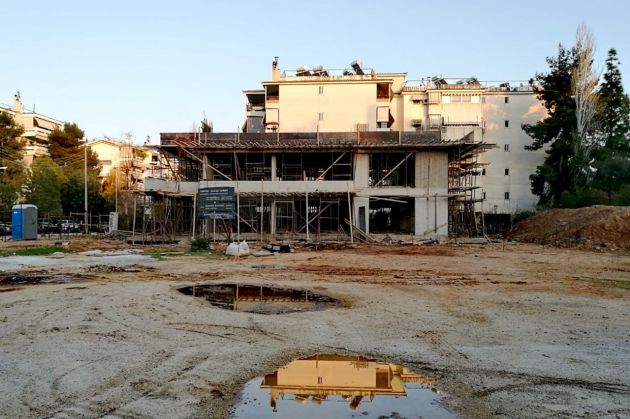
Perhaps, though, the best example has been set by Dr Tsiodras, who has addressed his large, concerned audience with respect. Apart from his scientific knowledge and ability to turn that into sound policy with the help of other officials, the professor has made an impression for championing the sanctity of human life. He has spoken with genuine emotion about the need to protect our elderly, underscoring the vital, and sometimes forgotten, role they play in our societies.
When outbreaks were confirmed at Roma settlements and migrant camps, he was the first to stand up and voice his opposition to any discrimination against either group, insisting that they are vulnerable, not a threat. It is rare for a public figure in Greece to stick his neck out in this way and it was noticeable that some commentators and social media pundits who championed his cause until then, presumably only because his appointment reflected well on the government, went quiet.
Above all, Tsiodras never tried to give the impression of being a miracle-worker or having a flawless response to every challenge. He always appeared to be someone trying to do a job to the best of his ability, hoping that this would suffice.
The decency of such behaviour is what we should cherish going forwards, ignoring the commotion about our supposed newfound, or rediscovered, powers. It may be what we end up remembering best about this period many years from now, along with the distinctive sights, sounds and smells. And the fleeting moments of quiet, when we had the chance to think about what we should value most.
*You can follow Nick on Twitter: @NickMalkoutzis